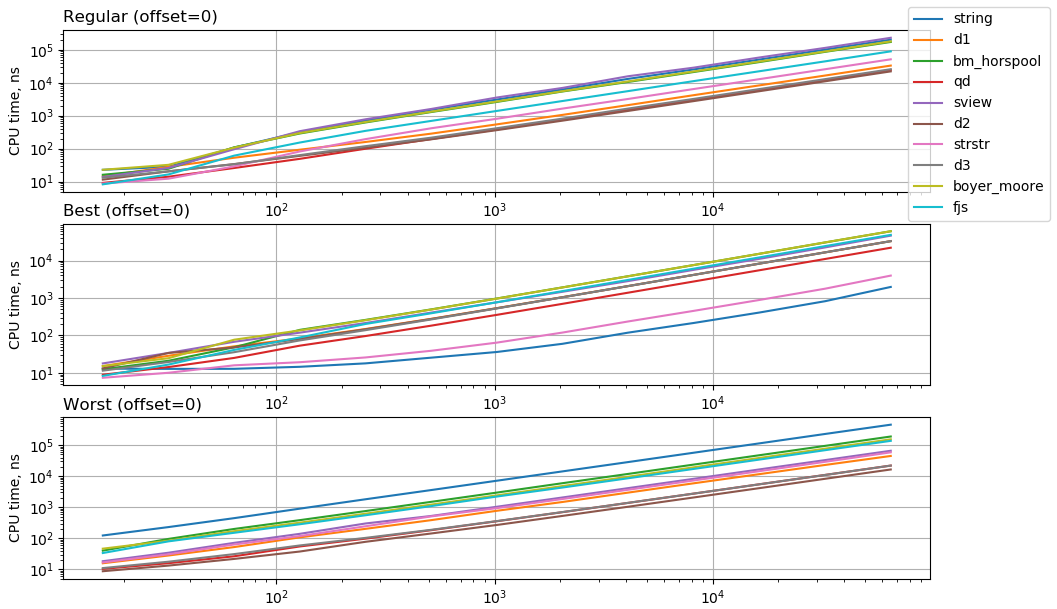Double CRLF is used to separate header and body in several 'human-readable' protocols like HTTP, SIP, etc.
The set includes common means provided by C and C++ RTL as well as few well known algos plus few hand-made dedicated routines for this only particular case.
The set is tested against different inputs: regular, worst and best, and multiple offsets where applicable.
- std::strstr
- std::string_view::find
- std::string::find
- Franek Jennings Smyth algorithm
- Boyer Moore
- Boyer Moore Horspool
- d1-searcher: reads by words (two bytes at once)
- d2-searcher: reads by words skipping next when possible, looks back when needed
- d3-searcher: reads by words with skips and saving previous to avoid look-back
- qd-searcher: reads by double words with skips and saving previous
- FJS algorithm was chosen as the fastest for our case among studied in https://arxiv.org/pdf/1012.2547v1.pdf.
- Boyer Moore algos are now included in STL.
- Custom algos currently do not care of reading beyond the input since were made only for comparison. Though adding proper handling of end of input shouldn't cause noticeable degradation.
- The both axes have logarithmic scale.
- Results are obtained for gcc7.2 with -O3 running on i7-3517U CPU at 3 GHz.
- Regular input
- The best performing searchers are custom dedicated routines d2 and qd.
- The worst performing searcher is std::string_view::find and std::string::find is next.
- std::strstr outperforms even FJS.
- As expected FJS outperforms both Boyer-Moore and Boyer-Moore-Horspool.
- Best input
- The best performing searcher is std::string::find which is due to recent optimization in STL for this particular function (uses strchr to find 1st char of pattern).
- The next to it is std::strstr.
- The worst performing searchers are Boyer-Moore and Boyer-Moore-Horspool.
- Worst input
- The best is d2 with qd next.
- The worst is std::string::find which is again due to the recent optimization.
- Alignment of input data.
- There were no noticeable impact on input alignment observed.
